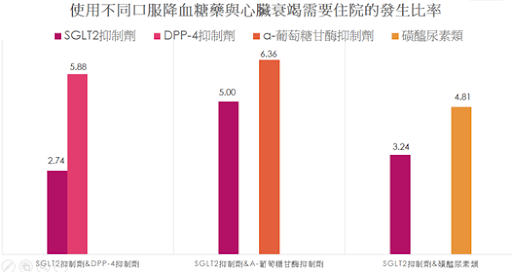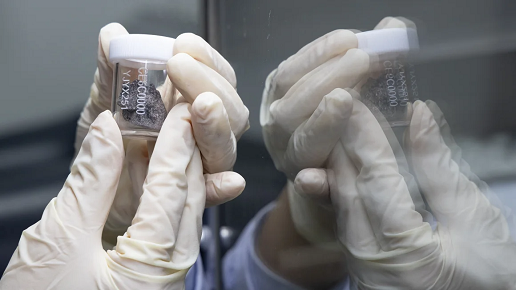According to statistics, approximately 60% to 80% of type 2 diabetes patients also suffer from obesity, chronic kidney disease, cardiovascular diseases, or multiple risk factors. The endocrinology and metabolism team at Taipei Veterans General Hospital has published a new study revealing that type 2 diabetes patients taking new-generation glucose-lowering medications can effectively reduce the risk of diabetic retinopathy and decrease the likelihood of hospitalization due to heart failure.

In addition to lowering blood glucose levels, SGLT-2 inhibitors also have a natriuretic effect, which can improve myocardial metabolism and kidney function. Photo / Provided by Heho Health
Dr. Chii-Min Hwu, the director of the Endocrinology and Metabolism Department at Taipei Veterans General Hospital, stated that the team utilized data from Taiwan's National Health Insurance database over the past 10 years. Their analysis confirmed that type 2 diabetes patients using the new glucose-lowering medication, SGLT-2 inhibitors, can protect their hearts and kidneys, reducing the risk of death. This significant research finding has been published in an international journal in December 2023.

Type 2 diabetes accounts for approximately 60% to 80%. Photo / pxhere
Dr. Hwu explained that currently, there are various oral glucose-lowering medications available for treating type 2 diabetes. This study focused on patients using the new SGLT-2 inhibitors and compared them with patients using sulfonylureas, α-glucosidase inhibitors, and other sulfonylurea medications, analyzing the risk of diabetic retinopathy. The results showed that patients using SGLT-2 inhibitors had a significantly lower incidence of diabetic retinopathy.
He emphasized that besides lowering blood glucose levels, SGLT-2 inhibitors also have a natriuretic effect, which can improve myocardial metabolism and kidney function, and improve the prognosis of heart failure. The research team further analyzed that patients using SGLT-2 inhibitors had a significantly lower rate of hospitalization due to heart failure compared to patients using other oral glucose-lowering medications.







